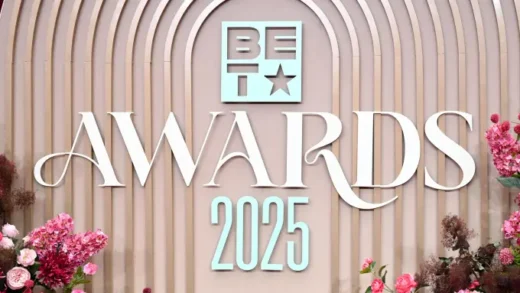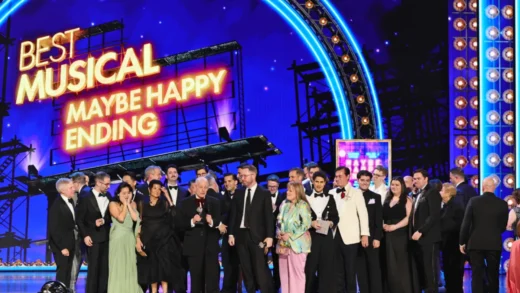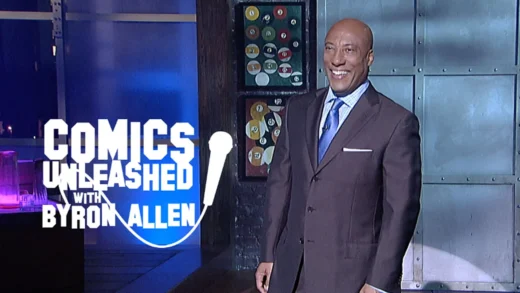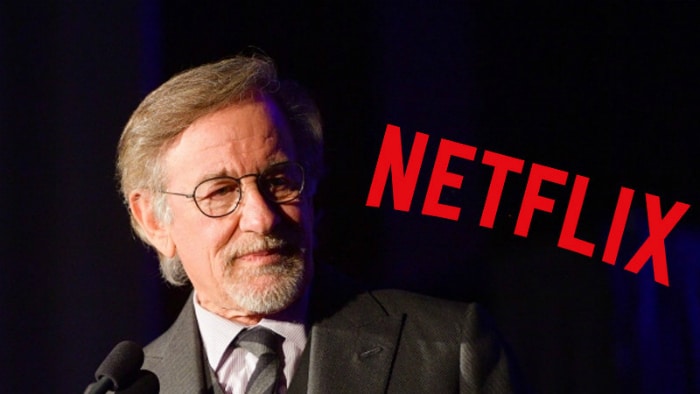“We love cinema.” That’s how Netflix began a statement it issued on Twitter in response to Steven Spielberg’s announcement that he will push for new guidelines regarding the eligibility of movies to compete in the Academy Awards. (Though the connection was obvious, the Netflix statement never mentioned Spielberg by name.)
Spielberg, a member of the Academy’s board of governors, has yet to fully articulate his proposal. But based on statements he has made (“Once you commit to a television format you’re a TV movie”), and based on the fact that Netflix has already proved its willingness to exhibit an Oscar contender in more than a few movie theaters, it seems overwhelmingly likely that Spielberg will push for the Academy to require something like a three-month window between a film’s theatrical release and its availability on streaming services. Any movie that streamed before that wouldn’t be eligible for Oscars. The potential guidelines would be aimed directly at Netflix, with its short-to-nonexistent window. But would that be fair to a company that loves cinema?
We no longer have to watch a movie, even a great one, in a movie theater; that hasn’t been necessary for close to 70 years. Before streaming we had DVDs, and before DVDs we had VHS, and before VHS we had the Sunday Night Movie (or the 4:30 matinee), and before any of that you could watch the Late Show on television any night of the week. So watching a movie at home, and chilling with it, is neither a big deal nor a new thing.
But watching a movie at home the day it comes out is very new. Taken to its logical extreme (or even halfway there), it undermines the basic economic engine that has driven Hollywood for the last 100 years, or as long as there has been a Hollywood. Put in practical and specific terms: If you knew, this weekend, that you could watch “Captain Marvel” in your living room just two weeks from now, for a charge of, say, $75, would you go out and see it in a movie theater? Or would you wait to see it at home? Different people will have different responses. And everyone can craft their own example (would you have waited to see “A Star Is Born”? “Sorry to Bother You”? “The Favourite”? “Bumblebee”?), based on their own viewing habits and priorities. But it’s obvious, when you think about it, where this all goes. It’s potentially the biggest paradigm shift in movies since the introduction of VHS, and maybe bigger.
Netflix, at various points, has given token theatrical releases to movies like “Mudbound” and “The Meyerowitz Stories (New and Selected).” Those blink-and-you’ll-miss-it theatrical runs are the new “For Your Consideration” ads. And during the last four months the company went through the highly unusual step of twisting itself in knots to pretend that it actually relished the experience. It didn’t merely give “Roma” a token release; the film played in more than 100 independent theaters, and was kept there for months, with Netflix actually paying the theaters for the privilege of doing so. If that isn’t love, the company seems to be saying, then what is it?
It’s become a routine thing to watch a relatively recent movie at home. To many of us, though, cinema — the religious experience of it, the larger-than-life quality of it — is still something that takes place in movie theaters. And I don’t believe that’s an outdated notion. Home viewing and theatrical viewing co-exist, and for a long time they didn’t fight each other (the introduction of the VHS proved, early on, to be a surprise financial cushion for Hollywood). But it is hardly a relic of an idea to say that the essence of cinema remains the theatrical experience.
On February 19th, 2019, Variety reported that while accepting the Filmmaker Award at the Cinema Audio Society’s CAS Awards, Steven Spielberg said, “I hope all of us really continue to believe that the greatest contributions we can make as filmmakers is to give audiences the motion picture theatrical experience. I’m a firm believer that movie theaters need to be around forever.”
Spielberg continued, in what many believe was a criticism of Netflix:
I love the opportunity. Some of the greatest writing being done today is for television, some of the best directing for television, some of the best performances [are] on television today. The sound is better in homes more than it ever has been in history but there’s nothing like going to a big dark theatre with people you’ve never met before and having the experience wash over you. That’s something we all truly believe in.
That day, Variety editor Marc Malkin tweeted a video of the speech (shown below).
Check out Steven Spielberg’s partial speech at the CAS Awards the other night. What do you think? https://t.co/zRIFlfYPbo pic.twitter.com/KqQINONwt0
— Marc Malkin (@marcmalkin) February 18, 2019
This would not be the first time Spielberg has spoken about Netflix’s participation in the Academy Awards. Back in March 2018, he said, “Once you commit to a television format, you’re a TV movie. You certainly, if it’s a good show, deserve an Emmy, but not an Oscar. I don’t believe films that are just given token qualifications in a couple of theaters for less than a week should qualify for the Academy Award nomination.”
The 2019 series of comments, however, were perceived to be in response to the awards success of the film Roma, which Netflix produced and received three Academy Awards.
Netflix’s Response
On February 28th, 2019, Netflix’s official Twitter account posted a video about how Netflix was offering opportunities to artists, writers and filmmaker who otherwise might not have their “stories told.” The tweet, which many perceived as a response to Spielberg, received more than 15,000 retweets and 46,000 likes in three weeks.
Let's make room for voices yet to be heard, for stories yet to be told. pic.twitter.com/A16DrZwWXI
— Netflix US (@netflix) February 28, 2019
In the end, this battle is merely a preview of the larger streaming war to come: the one about how long all movies, and not just Netflix movies, will get to play in theaters before they’re available at home. Because if that model genuinely changes, with the backing of the major studios, and the window shrinks down to a month or two weeks, then all bets are off. Netflix now stands like a monolith, but with that potential change looming it could look like one more toothpick in the war for cinema’s future.
(Excerpts) Read More at: Variety.com and KnowYourMeme.com





